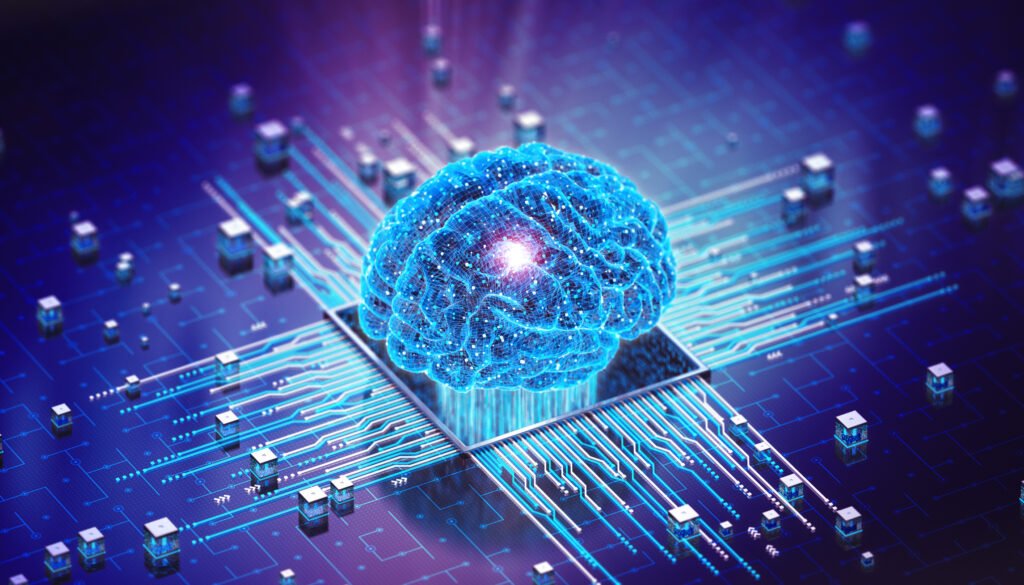Quantum computing, a revolutionary technology harnessing the principles of quantum mechanics, promises to transform numerous aspects of human life. Unlike classical computers, which process information in binary form (0s and 1s), quantum computers use quantum bits or qubits, which can exist in multiple states simultaneously due to superposition and entanglement. This fundamental difference allows quantum computers to solve complex problems exponentially faster than their classical counterparts. Here are five significant ways quantum computing will affect humanity:

1. Revolutionizing Cryptography and Cybersecurity
One of the most profound impacts of quantum computing will be on cryptography and cybersecurity. Classical encryption methods, such as RSA and ECC (Elliptic Curve Cryptography), rely on the difficulty of factoring large numbers or solving discrete logarithms, tasks that are infeasible for classical computers within a reasonable time frame. However, quantum computers, with algorithms like Shor’s algorithm, can solve these problems efficiently, potentially breaking current encryption schemes.

Impact:
- Data Security Risks: Many existing encryption protocols could become obsolete, making sensitive information, from financial transactions to personal communications, vulnerable to cyber-attacks.
- Development of Quantum-Resistant Encryption: To counteract this threat, there is an urgent need to develop and implement quantum-resistant cryptographic algorithms. Researchers are working on new algorithms, such as lattice-based cryptography, to secure data against quantum attacks.
- Transition Period: During the transition to quantum-resistant encryption, businesses and governments must update their cybersecurity strategies to protect data integrity and confidentiality.
Long-Term Benefits:
- Enhanced Security Protocols: Ultimately, quantum computing will lead to the creation of more robust security systems that can safeguard against both classical and quantum threats.
- Quantum Key Distribution (QKD): Quantum computers can facilitate secure communication through QKD, which uses the principles of quantum mechanics to ensure that any eavesdropping on the communication channel is detectable.
2. Accelerating Drug Discovery and Healthcare Advancements
Quantum computing’s ability to process vast amounts of data and simulate complex molecular structures makes it a powerful tool for drug discovery and healthcare innovations. Classical computers struggle with simulating the behavior of molecules due to the immense computational power required.

Impact:
- Faster Drug Discovery: Quantum computers can simulate molecular interactions at a quantum level, allowing researchers to identify potential drug candidates more quickly and accurately. This could drastically reduce the time and cost involved in bringing new drugs to market.
- Personalized Medicine: By analyzing large datasets from genetic information to individual health records, quantum computers can help develop personalized treatment plans tailored to a patient’s unique genetic makeup and health profile.
- Understanding Diseases: Quantum simulations can provide deeper insights into the mechanisms of diseases, leading to more effective treatments and potential cures for complex conditions such as Alzheimer’s, cancer, and viral infections.
Long-Term Benefits:
- Improved Patient Outcomes: Faster and more precise drug development, combined with personalized treatment, will lead to better health outcomes and improved quality of life for patients.
- Global Health Impact: Quantum computing can aid in tackling global health challenges by accelerating the discovery of vaccines and treatments for emerging diseases, contributing to better preparedness and response to pandemics.
3. Enhancing Artificial Intelligence and Machine Learning

Artificial Intelligence (AI) and Machine Learning (ML) have already begun to revolutionize various industries, from finance to healthcare. Quantum computing has the potential to take AI and ML to unprecedented levels by handling complex computations more efficiently.
Impact:
- Optimized Algorithms: Quantum computers can enhance machine learning algorithms by finding optimal solutions to problems that are currently infeasible for classical computers. This can lead to more accurate predictive models and improved decision-making processes.
- Faster Training: Training machine learning models requires significant computational resources and time. Quantum computing can expedite this process, allowing for quicker development and deployment of AI applications.
- Advanced Pattern Recognition: Quantum computers can improve pattern recognition capabilities, which is crucial for applications like image and speech recognition, natural language processing, and fraud detection.
Long-Term Benefits:
- Innovative AI Applications: Enhanced AI powered by quantum computing will lead to new applications in areas such as autonomous vehicles, smart cities, and advanced robotics, transforming daily life and various industries.
- Efficient Data Processing: The ability to process and analyze big data more efficiently will enable better insights and innovations across sectors, from climate modeling to financial forecasting.
4. Transforming Financial Services and Market Analysis
The financial sector relies heavily on complex calculations and data analysis for risk assessment, portfolio optimization, and market predictions. Quantum computing can provide a competitive edge by performing these tasks more efficiently.

Impact:
- Risk Management: Quantum computers can analyze large datasets to identify potential risks and opportunities in financial markets, enabling more effective risk management strategies.
- Optimized Trading: Quantum algorithms can optimize trading strategies by analyzing market trends and predicting price movements with greater accuracy. This can lead to more profitable and informed trading decisions.
- Fraud Detection: Enhanced pattern recognition capabilities of quantum computing can improve the detection of fraudulent activities, safeguarding financial transactions and reducing losses.
Long-Term Benefits:
- Economic Growth: Improved financial analysis and decision-making can drive economic growth by optimizing investment strategies and enhancing market stability.
- Inclusive Financial Services: Quantum computing can contribute to the development of more inclusive financial services, providing better access to credit and financial products for underserved populations.
5. Advancing Climate Modeling and Sustainability Efforts
Addressing climate change and promoting sustainability are among the most pressing global challenges. Quantum computing can play a crucial role in advancing climate modeling and developing sustainable technologies.

Impact:
- Accurate Climate Models: Quantum computers can process vast amounts of environmental data to create more accurate and detailed climate models. These models can improve our understanding of climate change and predict future environmental scenarios with greater precision.
- Renewable Energy Optimization: Quantum computing can optimize the design and efficiency of renewable energy systems, such as solar panels and wind turbines. It can also enhance energy storage solutions, making renewable energy more viable and efficient.
- Resource Management: Quantum algorithms can help optimize the management of natural resources, such as water and agriculture, by analyzing complex variables and predicting optimal usage patterns.
Long-Term Benefits:
- Sustainable Development: Quantum computing will enable the development of innovative solutions to environmental challenges, contributing to sustainable development and reducing the impact of climate change.
- Global Collaboration: Enhanced climate models and resource management tools can facilitate international collaboration on environmental protection efforts, promoting a more sustainable and resilient world.
Conclusion
Quantum computing holds the promise of transformative changes across various domains, from cryptography and healthcare to AI, finance, and environmental sustainability. As the technology continues to mature, its applications will likely expand, driving innovation and improving the quality of life globally. Embracing and preparing for the quantum revolution will be essential for maximizing its benefits and mitigating potential risks.
